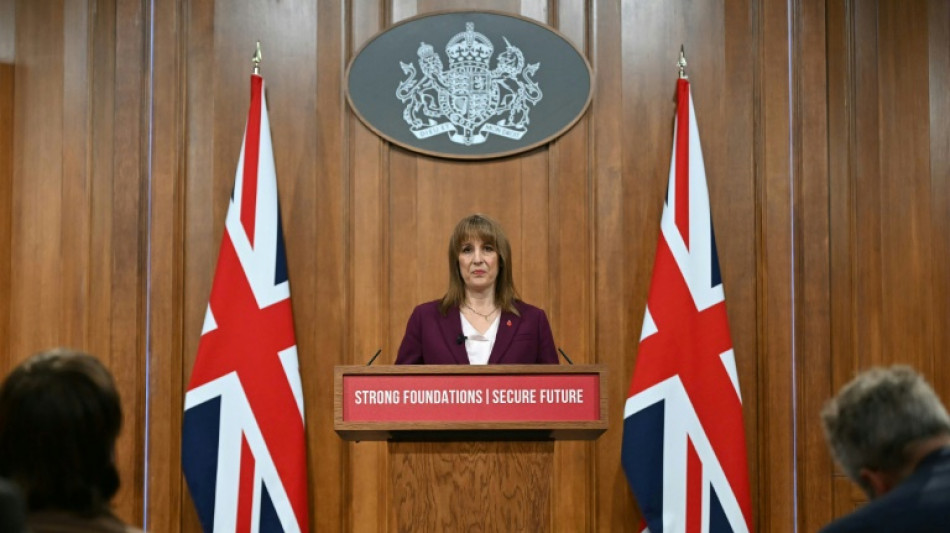
UK economic gloom deepens before budget

Britain's economy slowed in the third quarter, official data showed Thursday, dealing another blow to the Labour government ahead of its annual budget.
Gross domestic product grew 0.1 percent in the July-September period, down on 0.3-percent growth in the second quarter, the Office for National Statistics (ONS) said in a statement.
Analysts' consensus forecast had been for growth of 0.2 percent in the third quarter.
The growth figure comes after official data this week showed UK unemployment rising more than expected to 5.0 percent in the third quarter, ahead of the November 26 budget.
Prime Minister Keir Starmer's Labour party has struggled to consistently grow the economy since returning to power in July 2024 following 14 years of Conservative party rule.
Many analysts blame the weak growth largely on a decision by finance minister Rachel Reeves to increase a tax on businesses in her first budget last year.
She has indicated that taxes could rise on some salaries in the upcoming budget to help drive down government debt and to fund public services.
- 'More to do'-
The latest quarterly figure was well below the 0.7-percent growth recorded in the first three months of the year.
"The economy is struggling to gain decent momentum in the face of higher taxes," noted Ruth Gregory, deputy chief UK economist at Capital Economics, adding that gross domestic product was impacted also by weak exports.
She warned that "with tax rises in the upcoming budget likely… there is little reason to think that GDP growth will accelerate much from here".
In response to Thursday's figures, Reeves said "there's more to do to build an economy that works for working people".
"At my budget later this month, I will take the fair decisions to build a strong economy," she added.
The ONS data showed that in September alone, the UK economy contracted 0.1 percent after a cyberattack on carmaker Jaguar Land Rover hit the manufacturing sector.
August's figure was revised down 0.1 percentage points to zero growth.
"Growth slowed further in the third quarter of the year with both services and construction weaker than in the previous period," said ONS director of economic statistics Liz McKeown.
"There was a particularly marked fall in car production in September, reflecting the impact of a cyber incident, as well as a decline in the often-erratic pharmaceutical industry," she added.
Despite the weak growth, the Bank of England left its key interest rate unchanged in November as annual inflation rested far above the central bank's two-percent target.
However, the third-quarter growth data "all but seals a December rate cut when added to the weak jobs data" this week, predicted Rob Wood, chief UK economist at Pantheon Macroeconomics.
L.Girard--SMC


 London
London

 Manchester
Manchester
 Glasgow
Glasgow
 Dublin
Dublin
 Belfast
Belfast
 Washington
Washington
 Denver
Denver
 Atlanta
Atlanta
 Dallas
Dallas
 Houston Texas
Houston Texas
 New Orleans
New Orleans
 El Paso
El Paso
 Phoenix
Phoenix
 Los Angeles
Los Angeles



